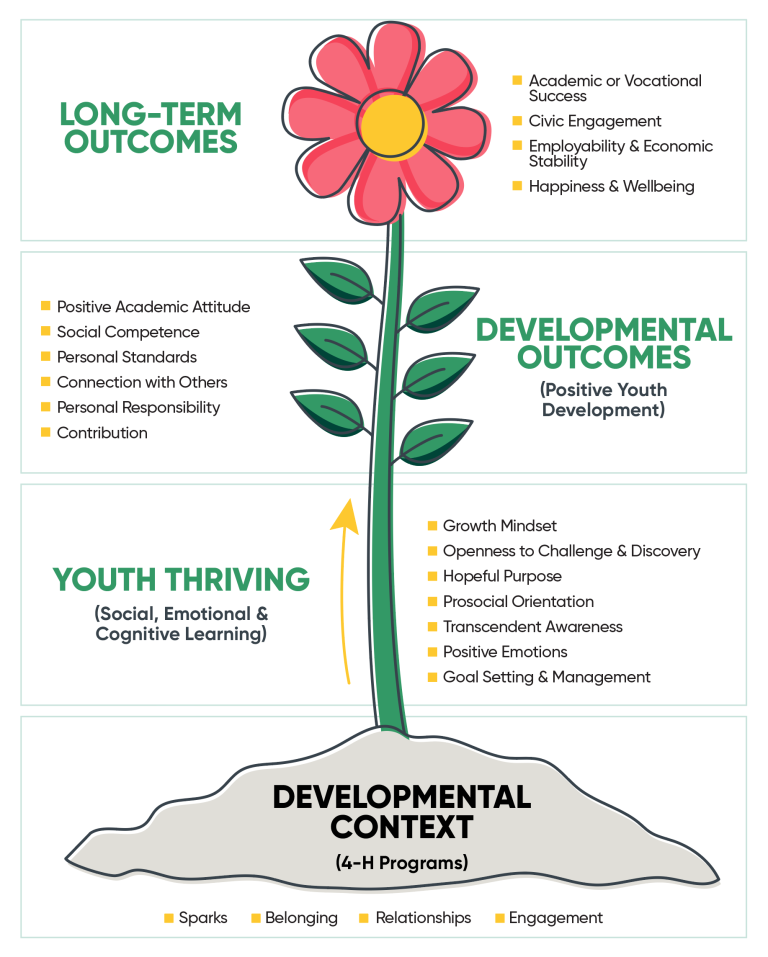Positive youth development leads to success in the 4-H horse and pony project
Positive youth development is used to help develop many life skills and build a great set of strengths within youth.

Youth develop a multitude of skills through 4-H and the projects that accompany their experiences. Many of the projects incorporate leadership, critical thinking and hands-on skills. Michigan State University Extension, and Michigan 4-H have already established programs and resources to provide guidance for the project areas that teach great skills. One of those programs is the horse and pony project.

Leaders and volunteers within the horse and pony project work hard to provide youth with a setting where they feel they belong and matter. In turn, they find their spark. This type of learning environment falls in line with the 4-H Thriving Model. Youth finding a spark within the horse and pony project does not mean you have to go out and buy a horse tomorrow, instead it helps youth find opportunities to learn more about the project area!
It is important to always encourage youth to have fun and try new things. Positive youth development benefits young people in ways that impact them in the long term. By trying new things, youth learn important new life skills and the capacity to grow and develop.
Many of the key principals of positive youth development fall in line with the 4-H Thriving Model. Those principles range from civic involvement and engagement to youth leadership roles. Those roles may look like being a 4-H club president or perhaps a fundraising chairperson for a 4-H club. Allowing youth to have these opportunities allows them to fine tune critical thinking and even motor skills.
We foster these learning opportunities as ways to encourage youth to try new things and be able to handle growth. The American Quarter Horse Association (AQHA) does a phenomenal job of outlining ways youth can grow through working with horses. AQHA talks about the many skills they gain, like motor skills, but also those critical thinking skills. For example, some of these skills present themselves like positive sportsmanship and being able to appropriately handle competition. While 4-H isn’t just about the competition, adults know that it is a small part of the project so we must do our best to teach youth how to handle competition in an appropriate manner.
The AQHA also encourages youth to join horse organizations and 4-H because there are many opportunities for youth to participate in the horse and pony project area, even without owning a horse. Opportunities like hippology, horse judging and even communications are contests where youth that have the love and knowledge about horses can compete on a level playing field with other youth who are of the same skill level as them.
Interested in the 4-H horse and pony projects? Contact your local Michigan State University Extension office to see how you can get involved or to find a 4-H club near you.



 Print
Print Email
Email
